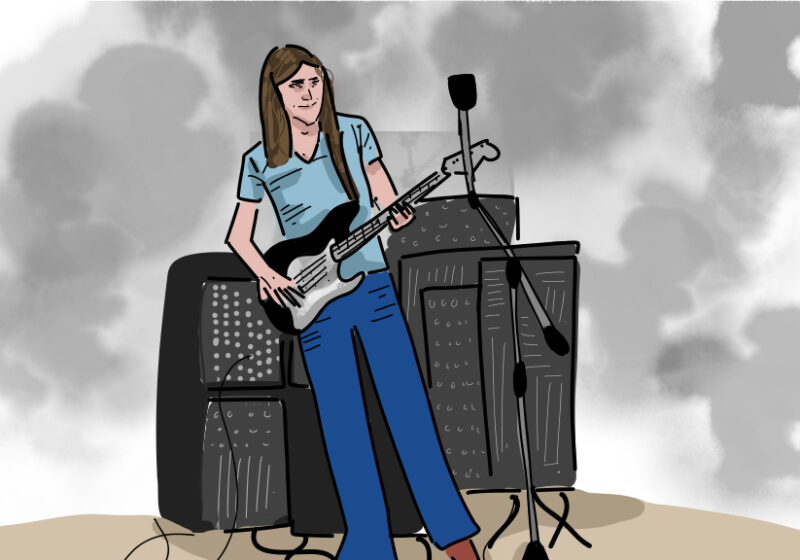My dad introduced me to David Gilmour as part of Pink Floyd’s music when I was 13. He made me listen to “The Happiest Days of Our Lives” and “Another Brick in the Wall” as he recollected his time in England as a schoolboy. The Orwellian atmosphere in the politically charged Animals that Floyd provided also set me out to find more work from them. It created a dismal and dystopian mood by employing the same literary device in George Orwell’s Animal Farm — comparing humans to animals where the pigs are the dictators and politicians, the dogs are the loyal henchmen, and the sheep are the ignorant followers. I loved how the record was centered around Orwell’s writing, with him serving as a guide.
Fortunately, I discovered Gilmour’s music — and it gradually drew me in. It was, in fact, the guitar solo from “High Hopes,” released in 1974, that made me realize the magnificence of Gilmour. His playing added even more intensity and sentimentality as if Roger Waters’ poignant lyrics were not already bitterly nostalgic — I remember thinking about how Gilmour’s guitar was crying, with its hallucinogenic and melancholic effect.
Eventually, beginning in 1978, Gilmour started releasing solo music, with the most recent being Luck and Strange on Sept. 6.
Since I had not been particularly fond of Gilmour’s work outside of Floyd, I was originally unsure how much I would appreciate it. However, I was pleasantly surprised to have enjoyed it significantly. Even so, I would agree with those who claim that Gilmour’s lyrics are comparable to Floyd’s later work, after the departure of pivotal member Waters — certainly not the most outstanding compared to their earlier music, but pleasant nonetheless.
Floyd lacked Waters’ musical brilliance once he left, leaving the band bereft of the conceptual uniqueness that set them apart. Although Waters is undoubtedly among the finest at incorporating themes of life into his lyrical notions, it is obvious that Gilmour did not half-ass this album.
Wonderfully put together, there are obvious influences and elements from Floyd’s Meddle, Animals, and The Wall. Gilmour’s artistry is felt in each song, as his guitar solos are filled with introspection and passion. The title track, “Luck and Strange,” is bluesy, accompanied by the late Richard Wright’s keyboard work; Romany Gilmour’s beautiful and silky vocals with their harp cover “Between Two Points,” originally sung by the Montgolfier Brothers; “Dark and Velvet Nights” has a quicker tempo with rougher guitar riffs; “Scattered” is to yearn for — captivating and radiant; and “Yes, I Have Ghosts” sounds like an acoustic duet between Floyd and Leonard Cohen, making for the perfect ending to a well-made album.
Gilmour has accomplished much in his stellar career. This felt like a heartfelt and thoughtful farewell, the culmination of his body of work — the height of Gilmour’s ability and experience accumulated over the years.





